ENERGY IN POLAND State and the future Nuclear
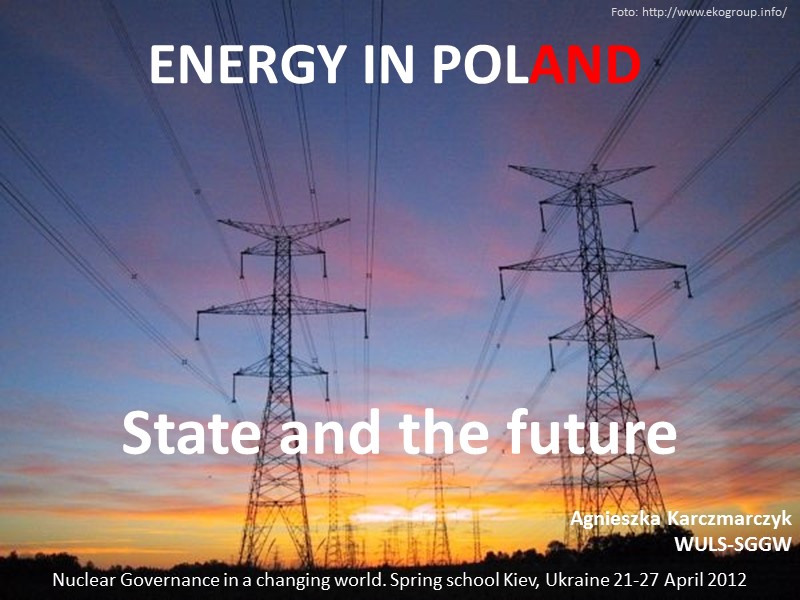
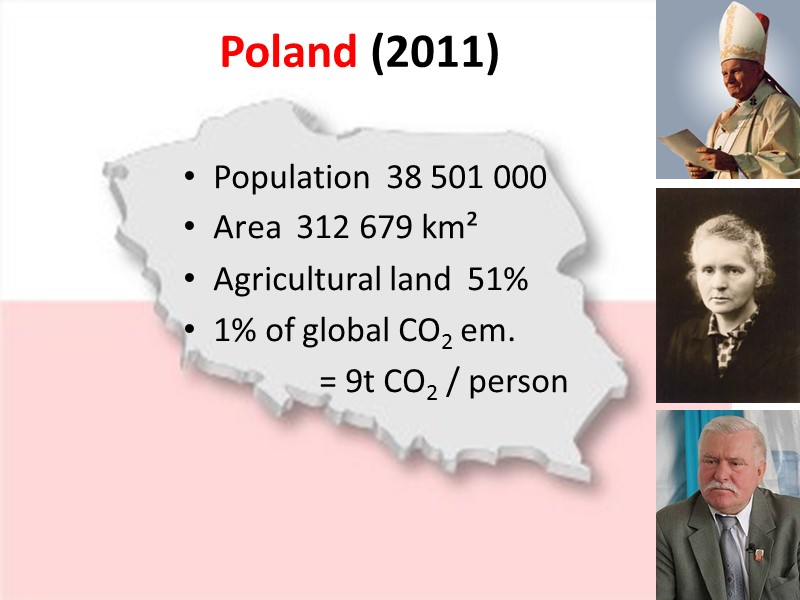
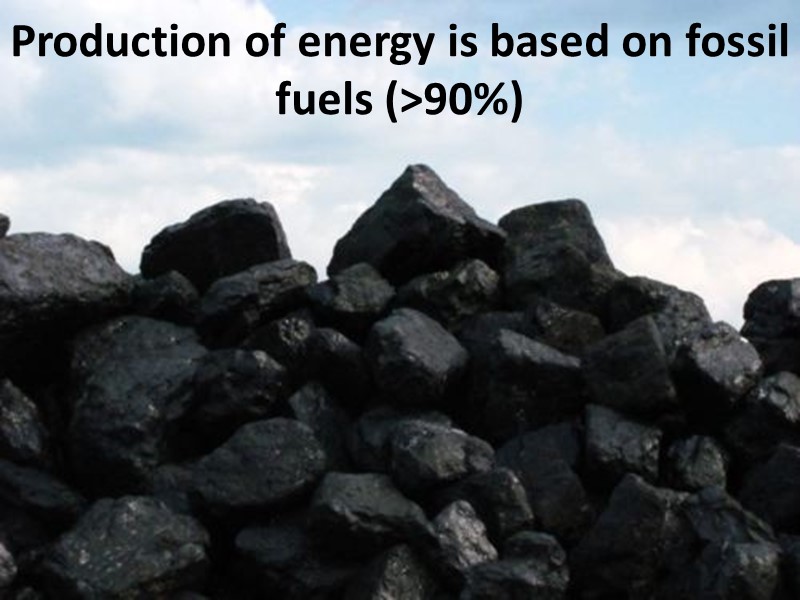
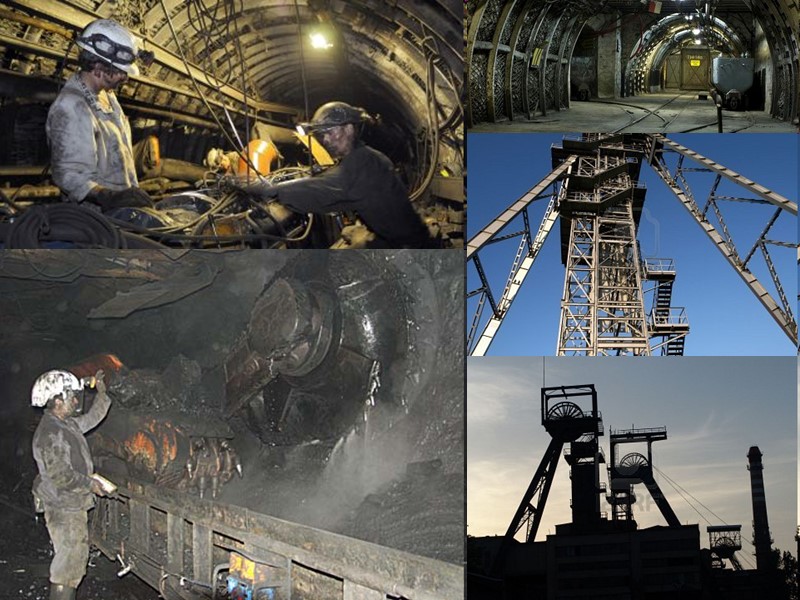
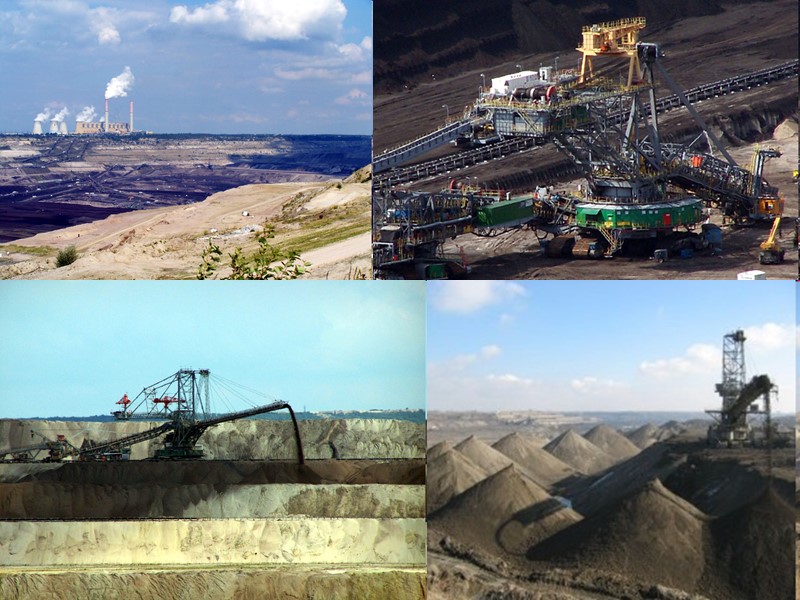
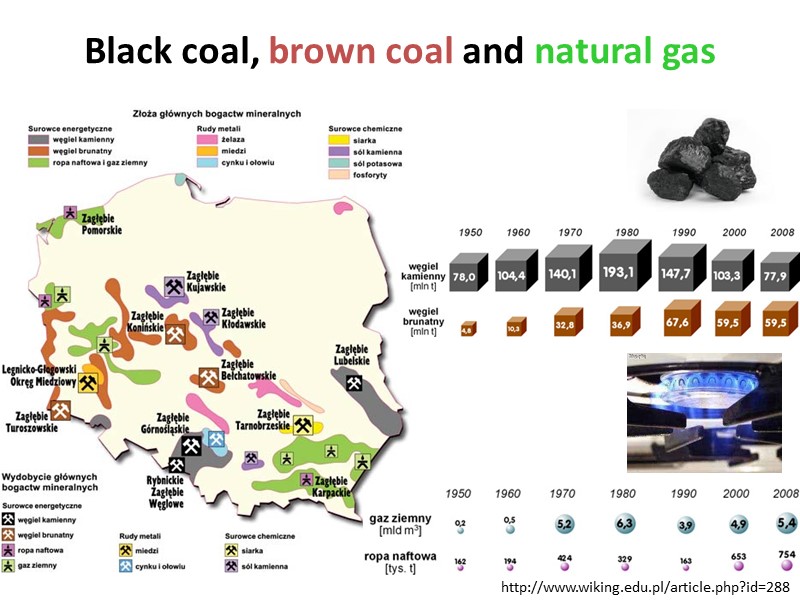
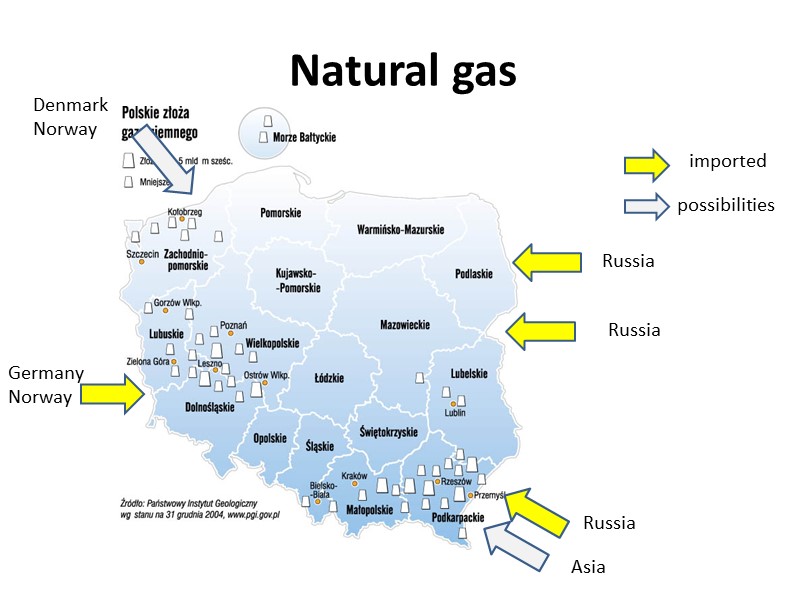
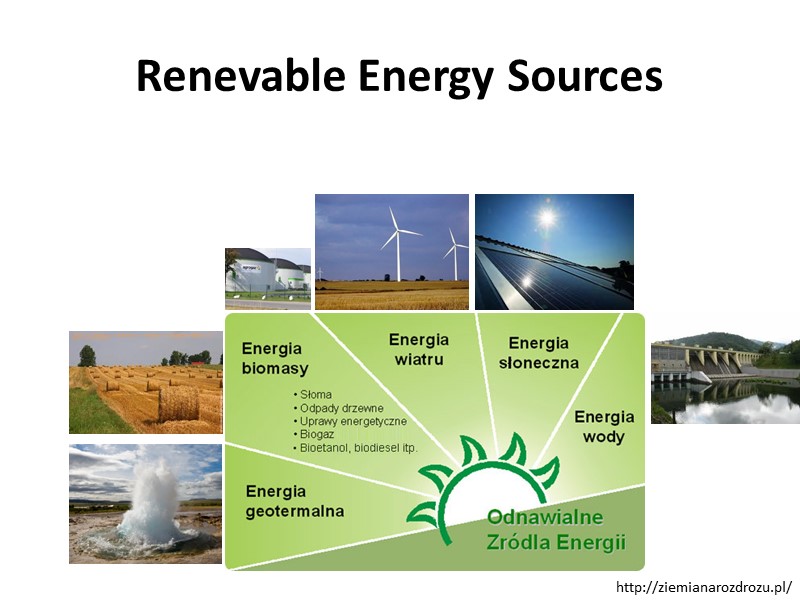
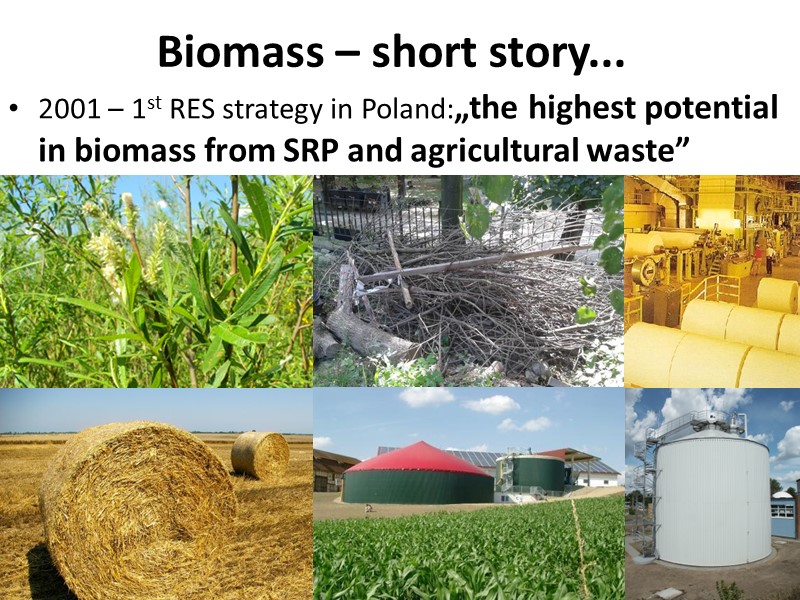
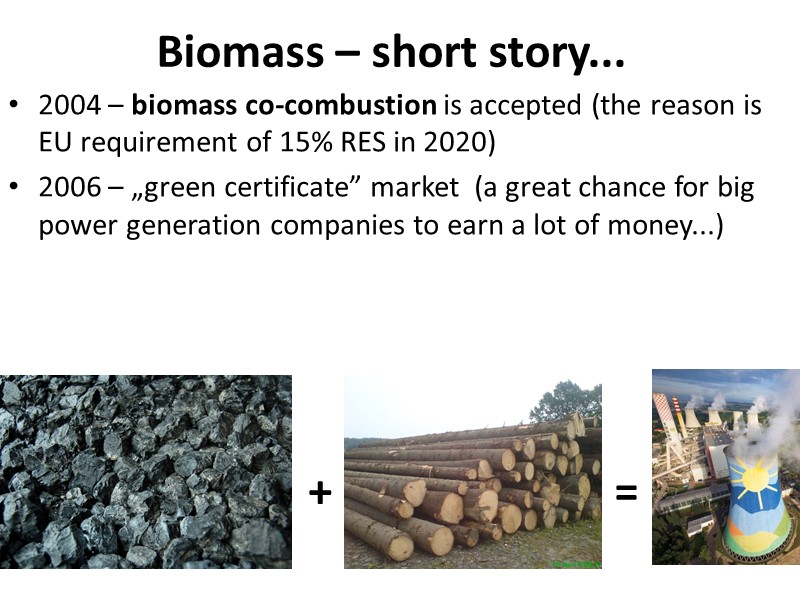
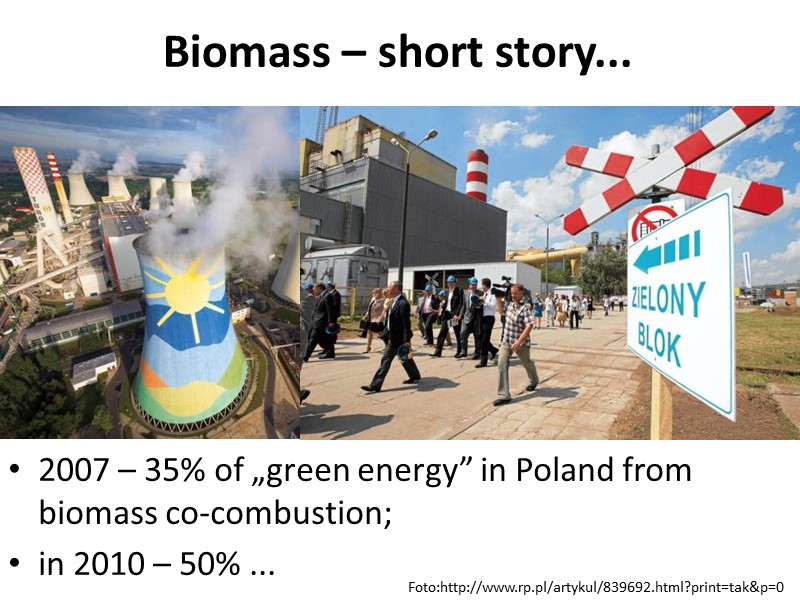
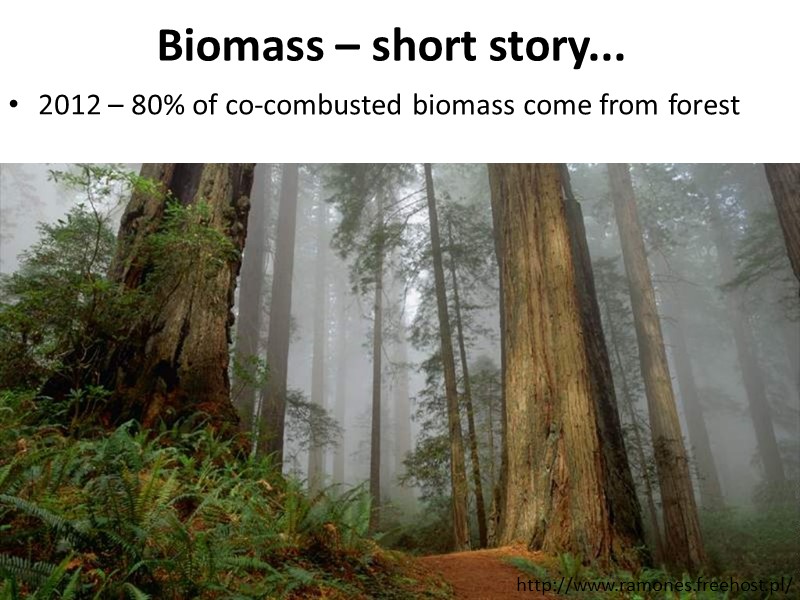
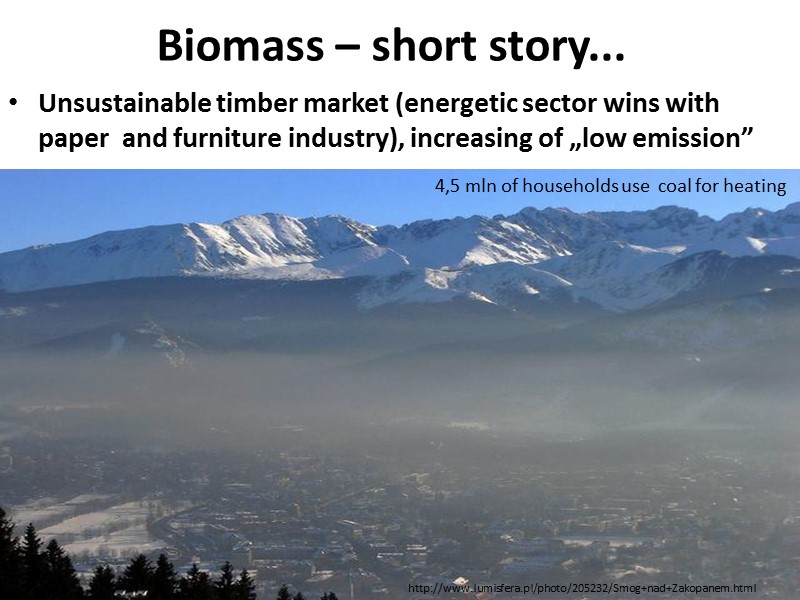
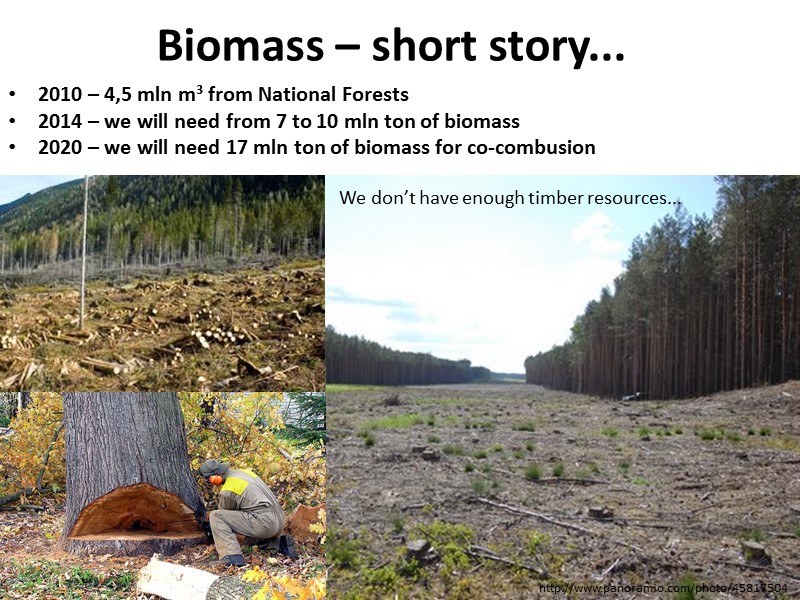
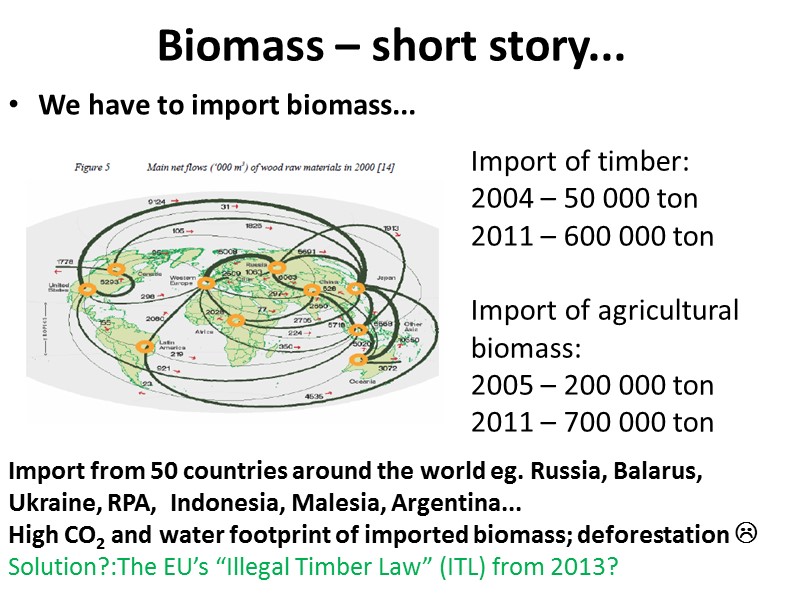
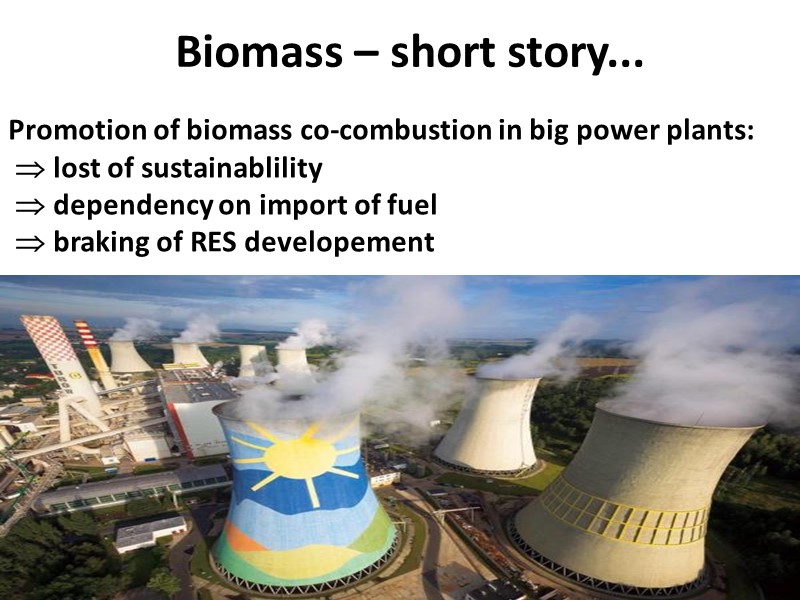
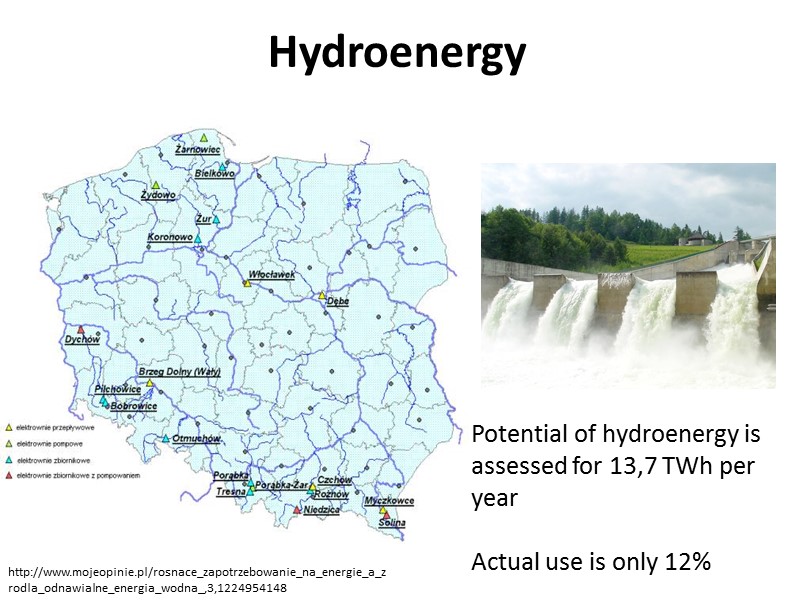
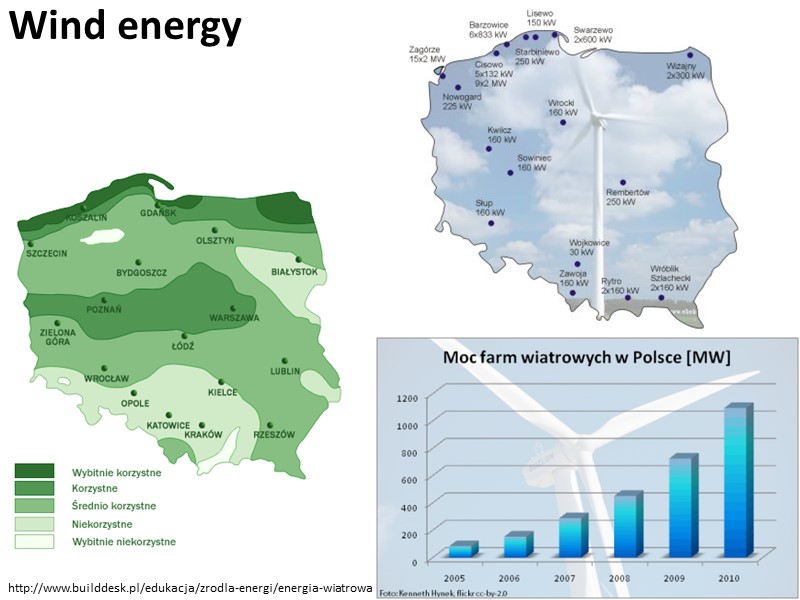
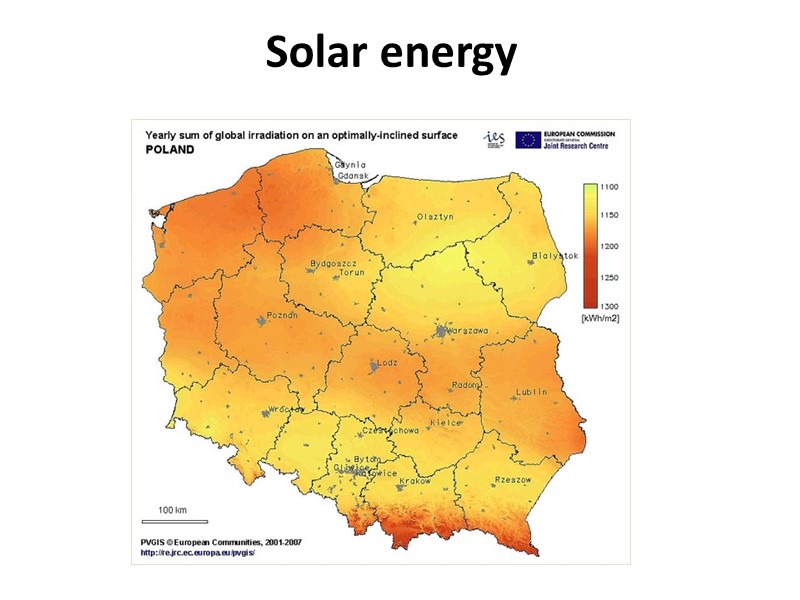
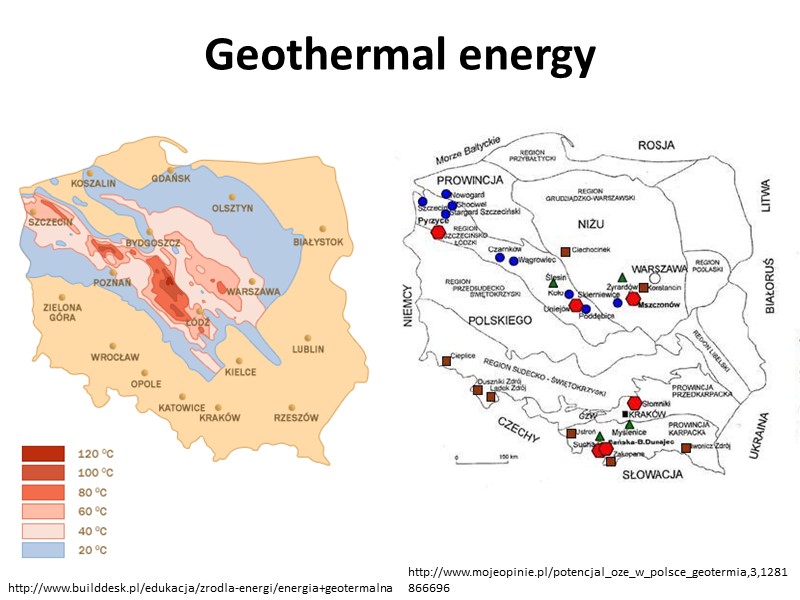
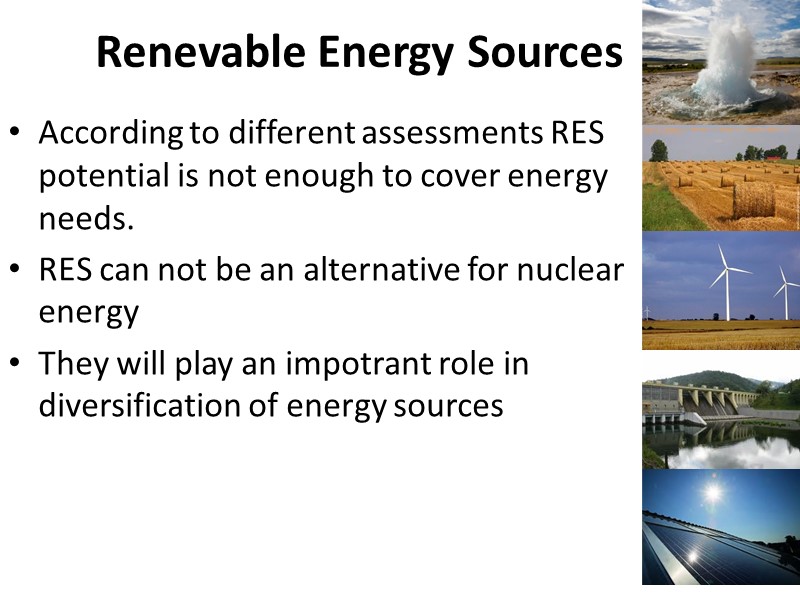
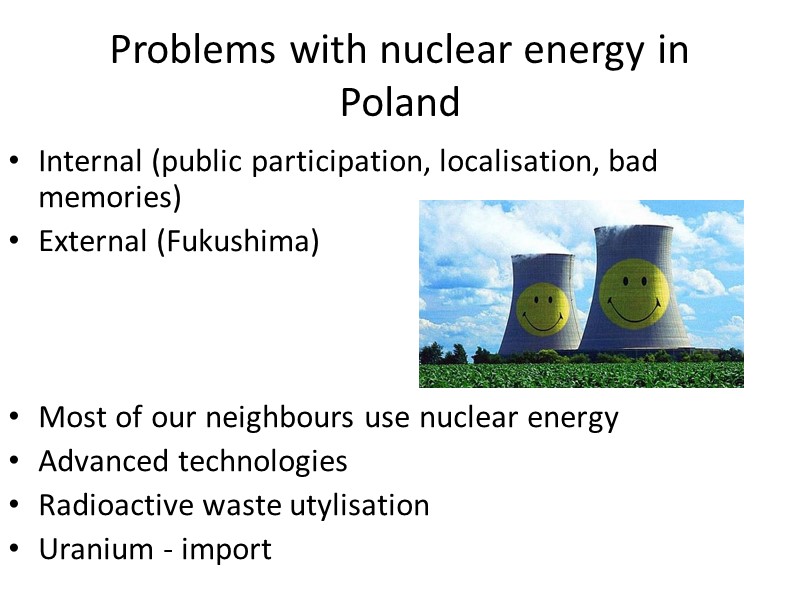
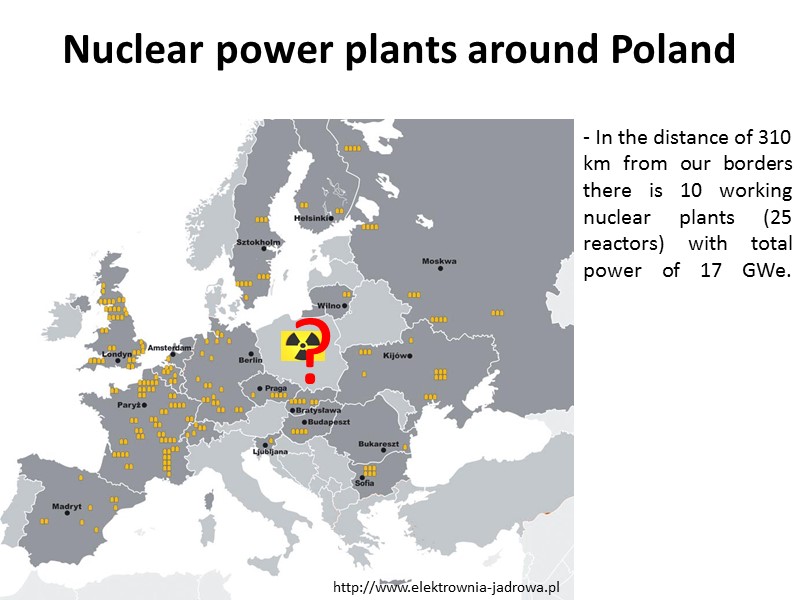
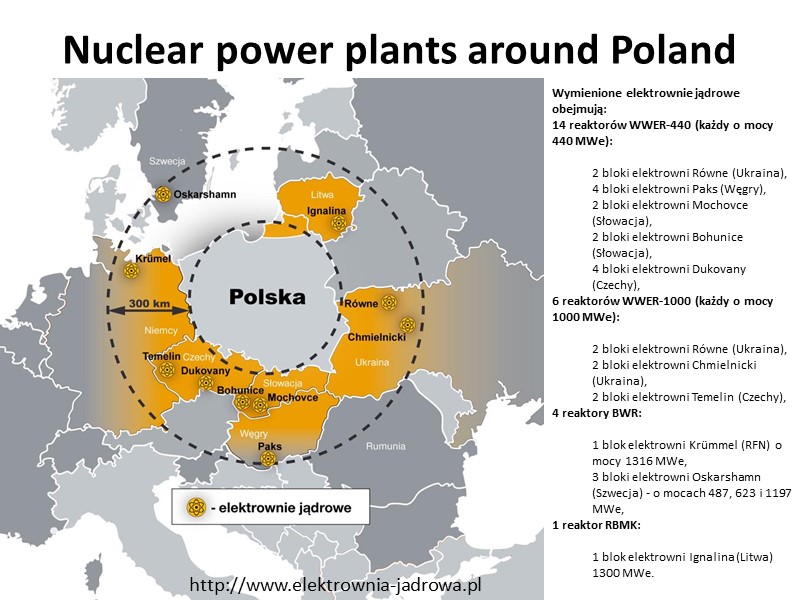
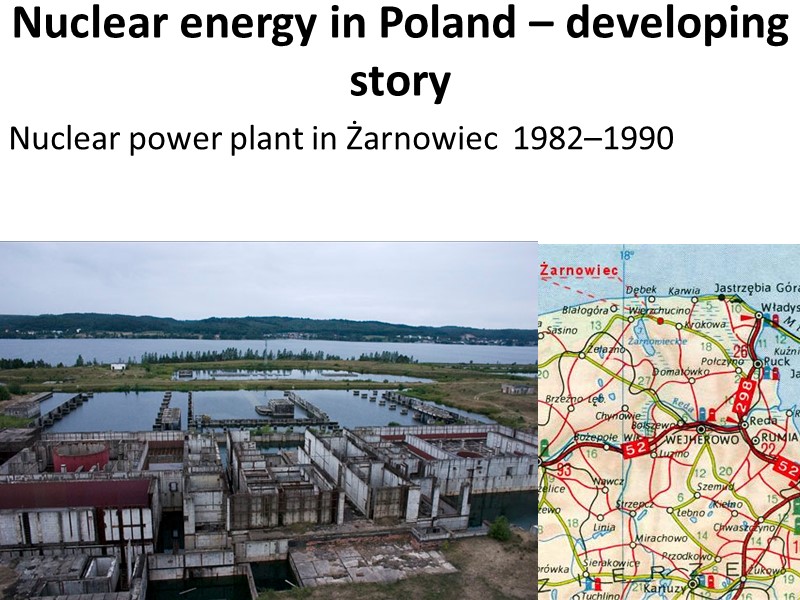
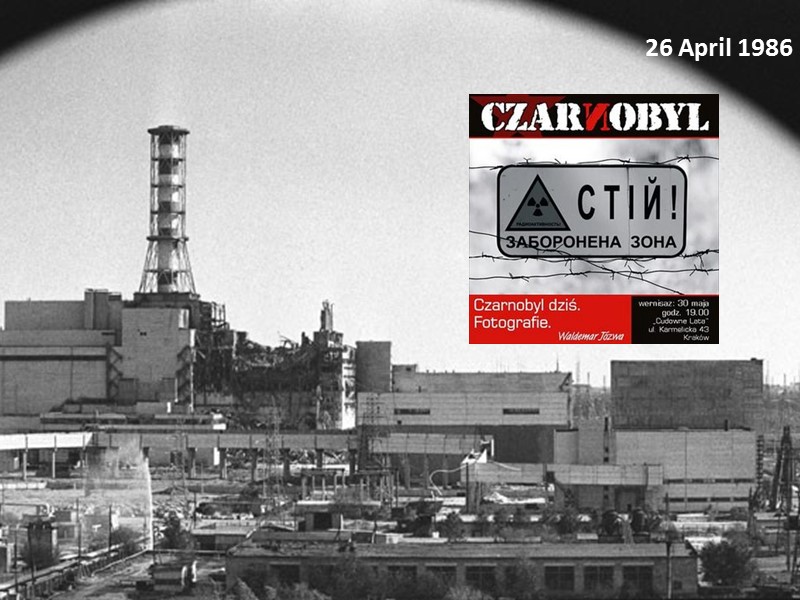
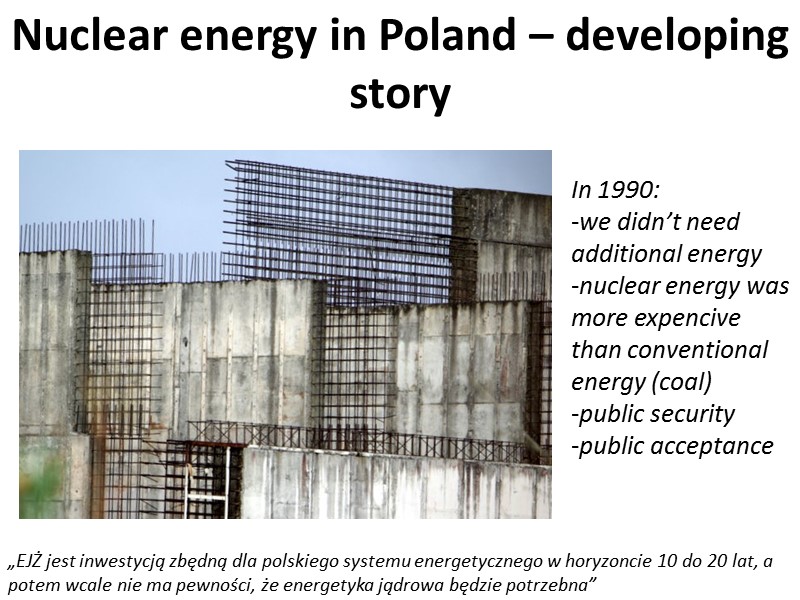
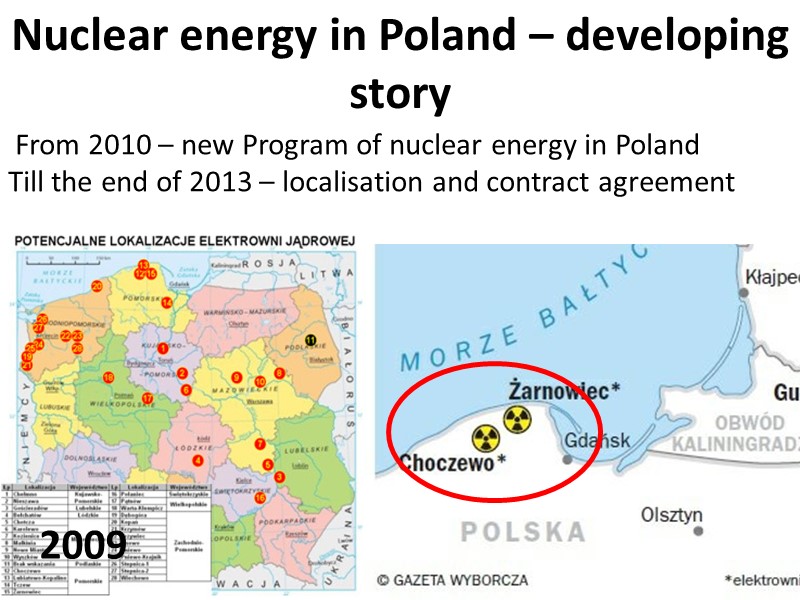
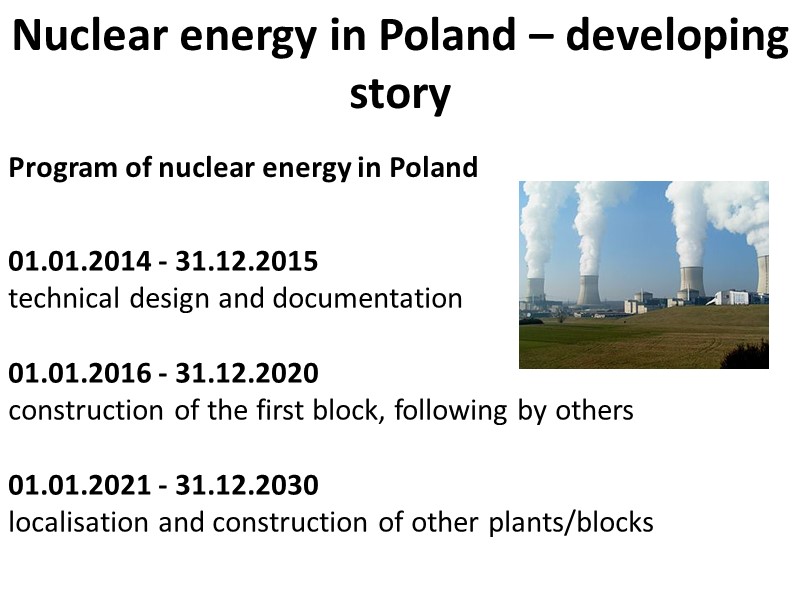
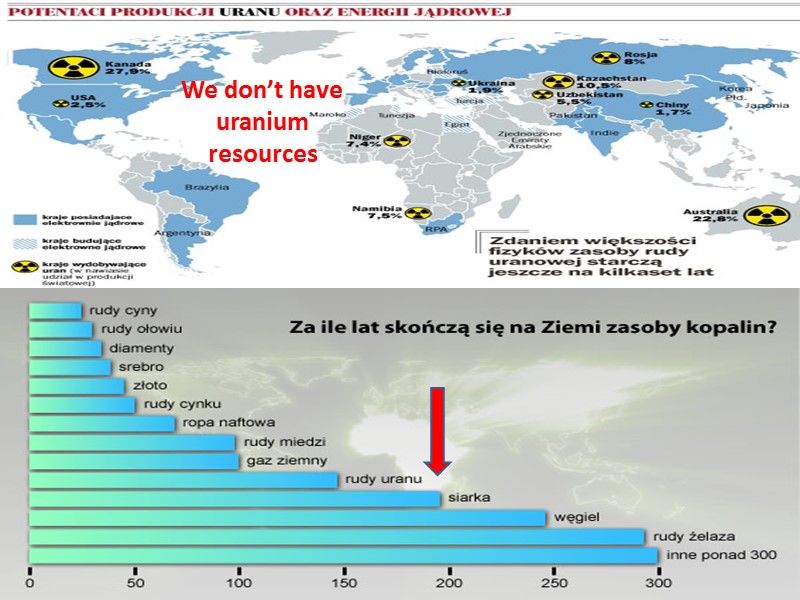
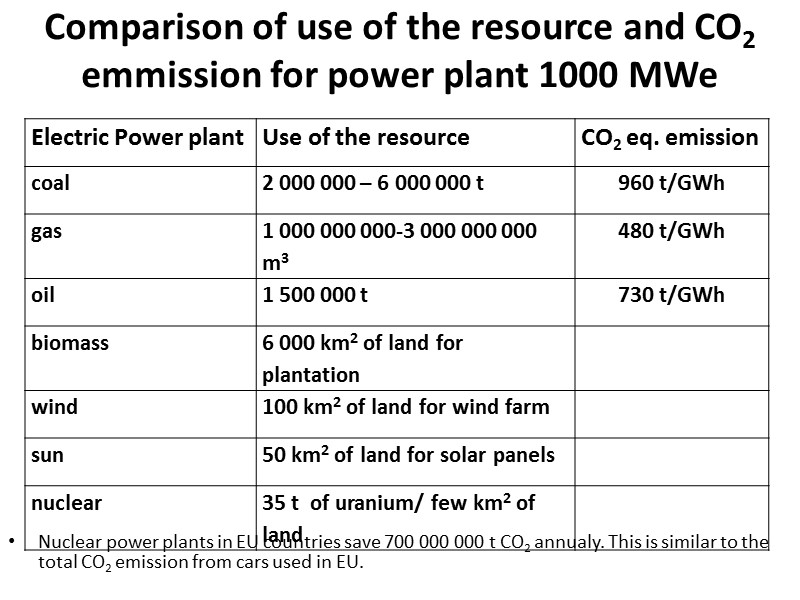
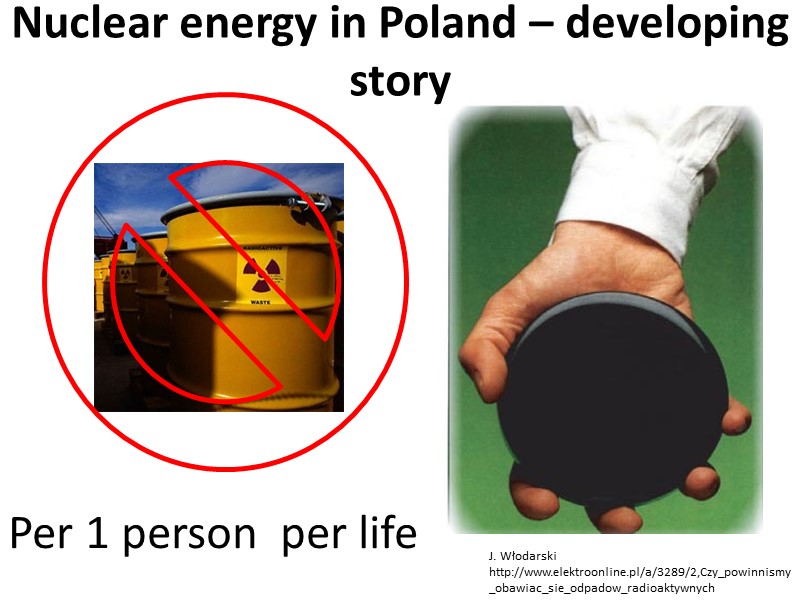
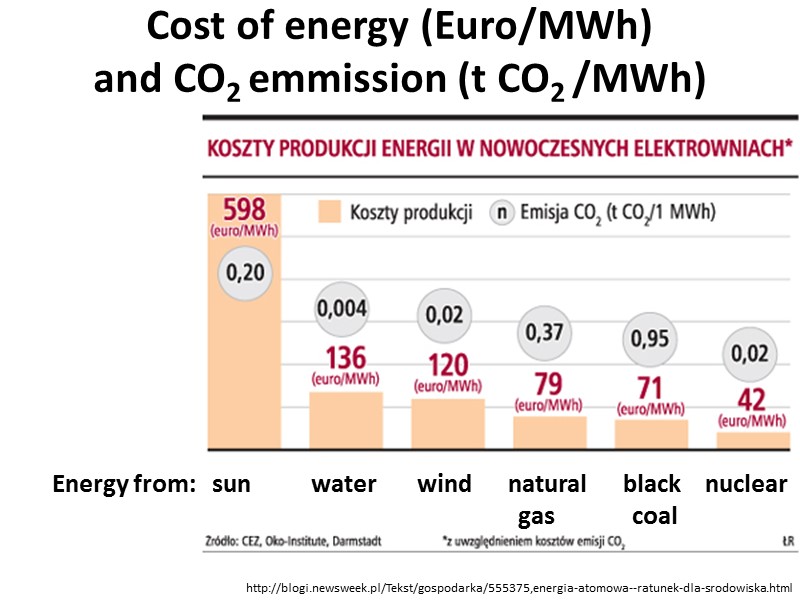
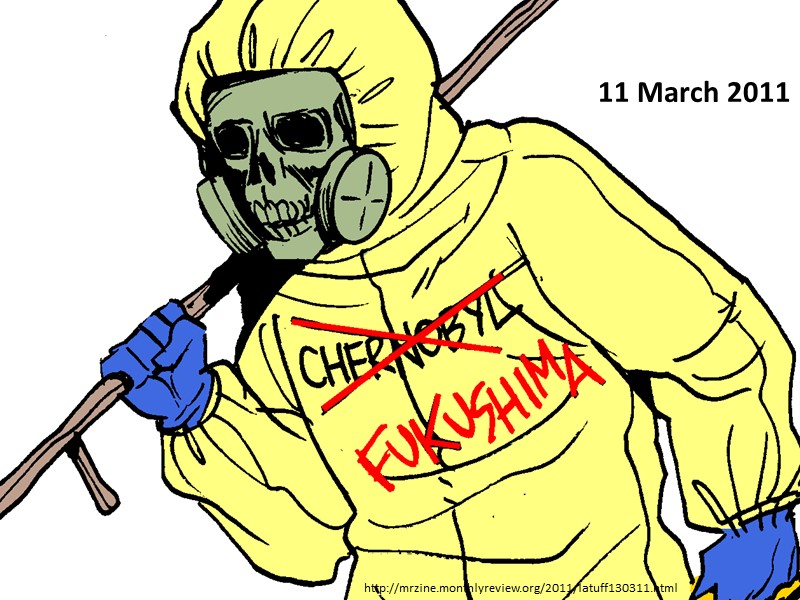
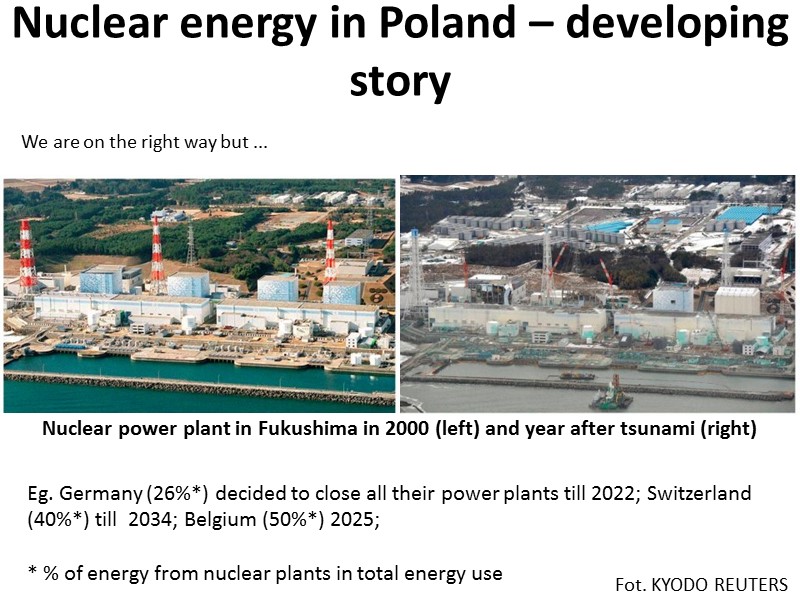
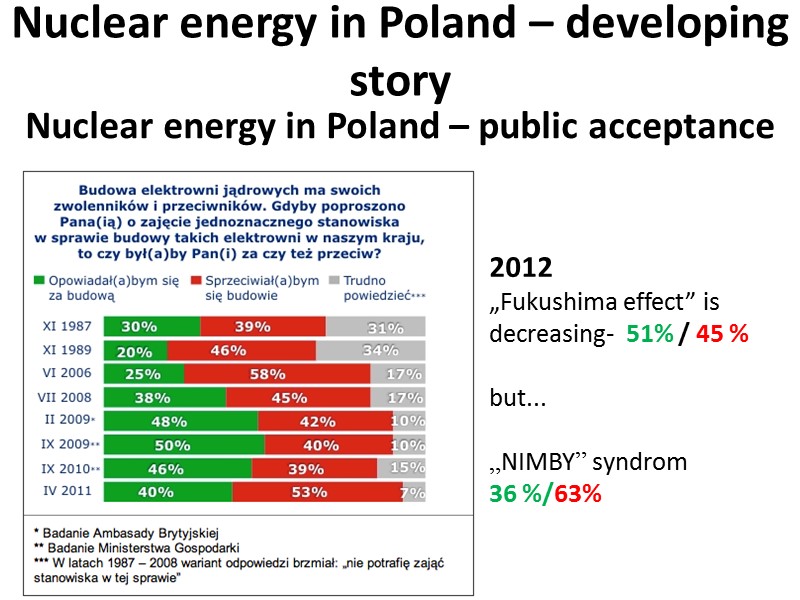
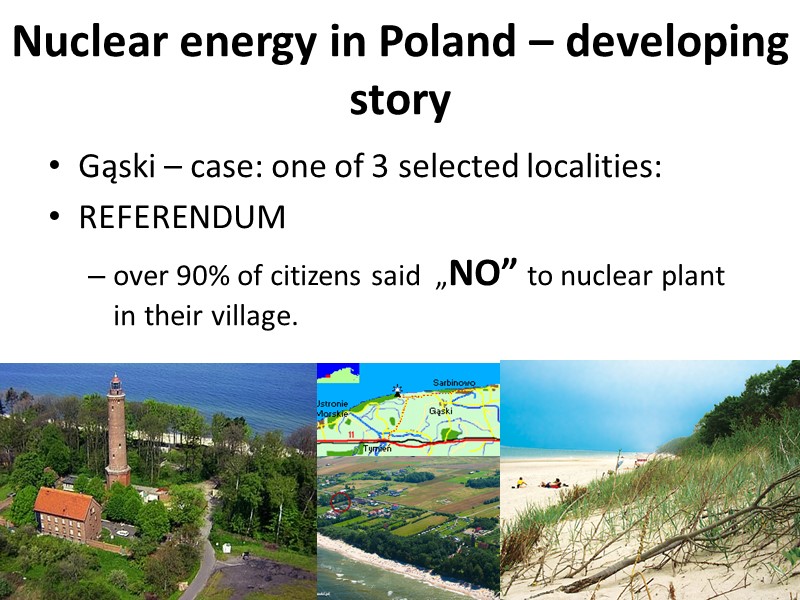
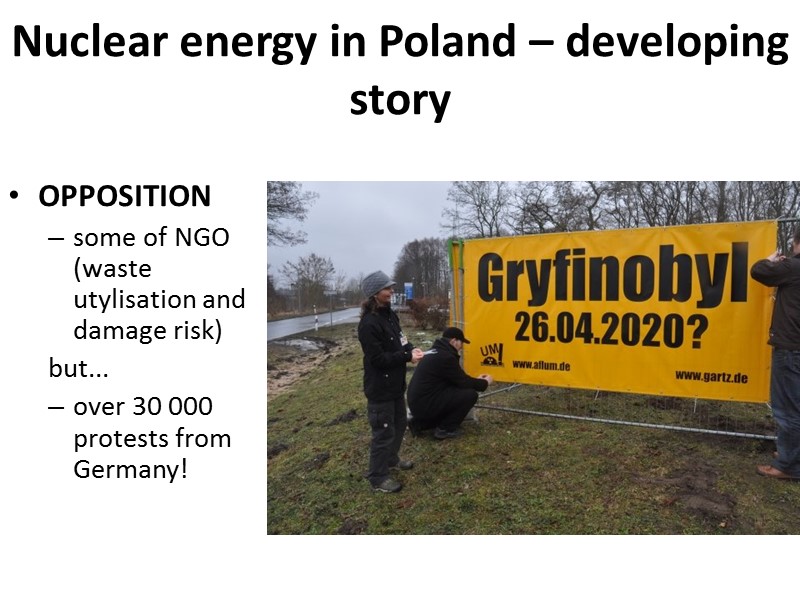
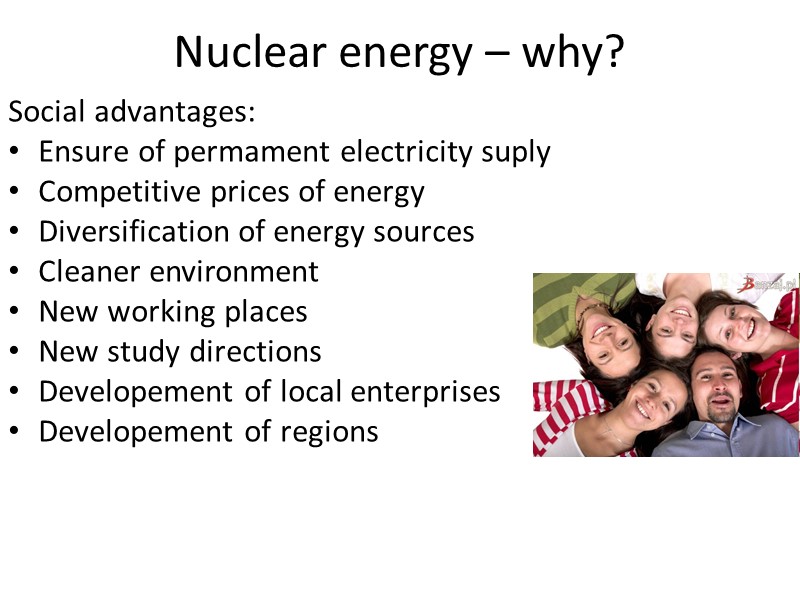
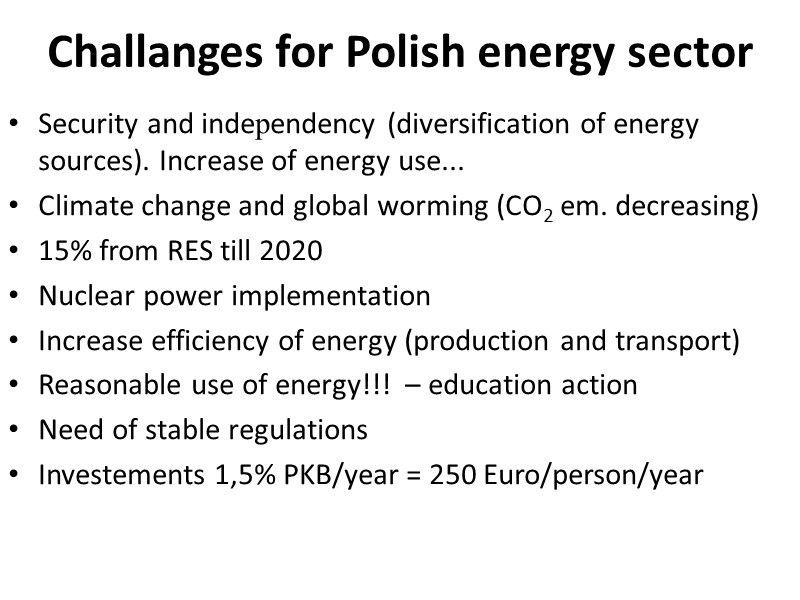
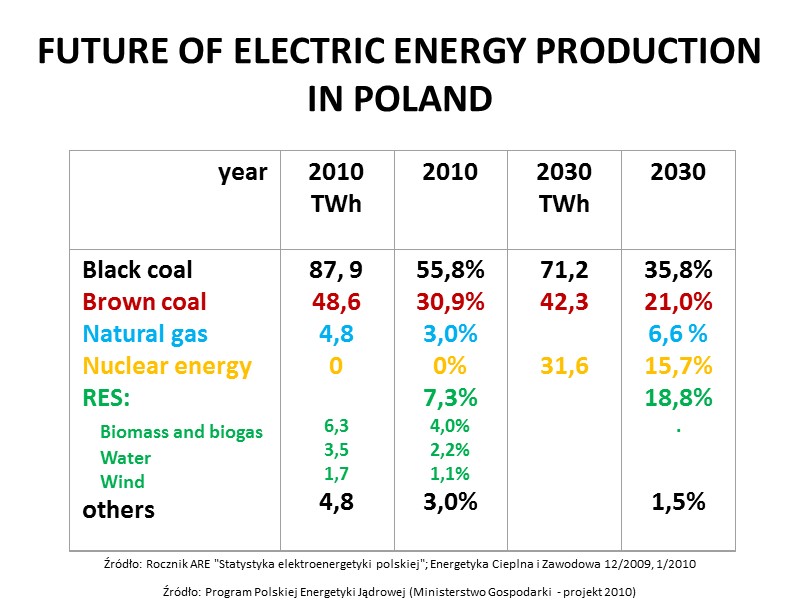
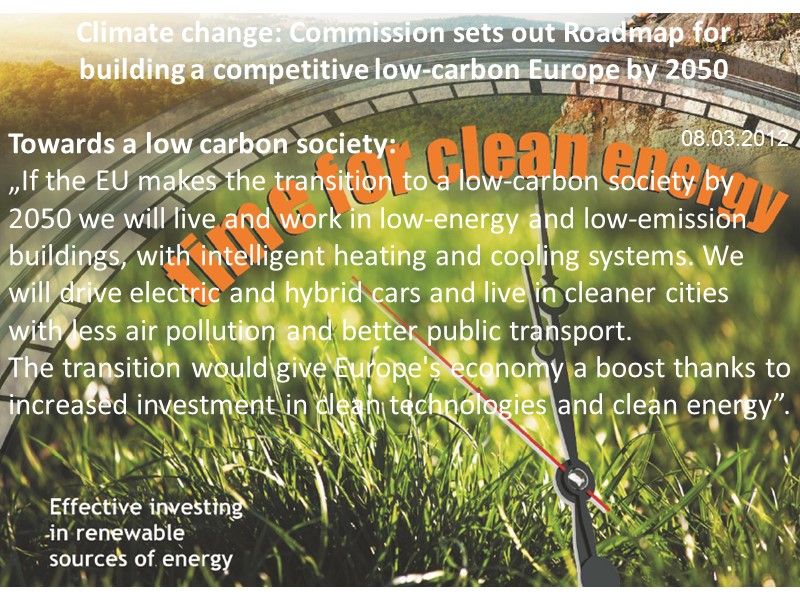
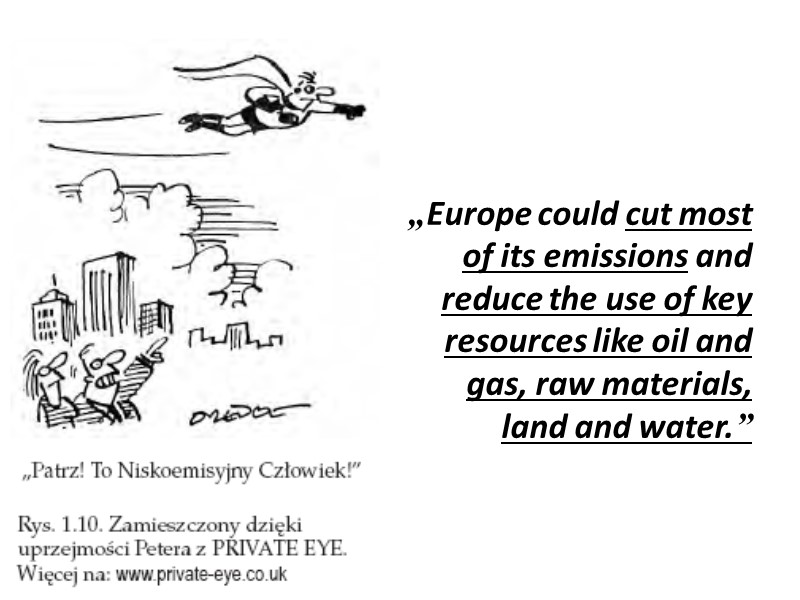
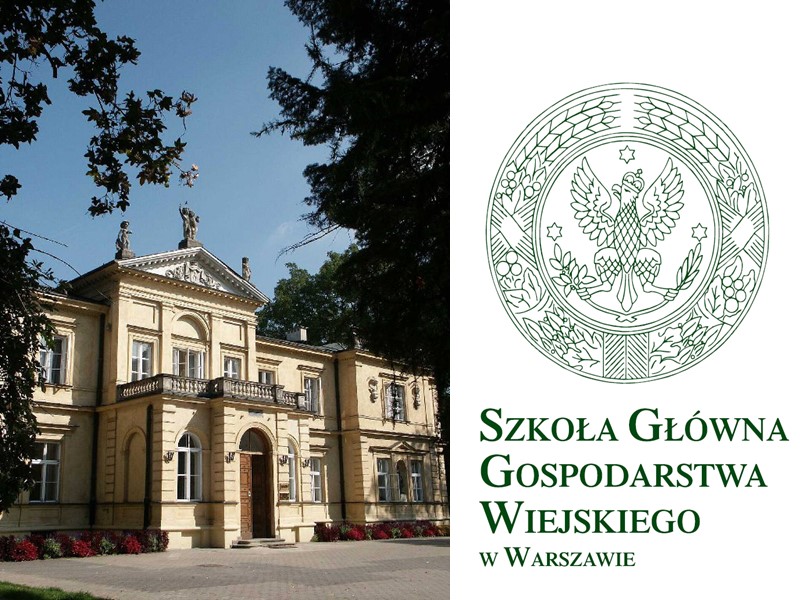
31140-energy_in_poland_v2.ppt
- Количество слайдов: 44
 ENERGY IN POLAND State and the future Nuclear Governance in a changing world. Spring school Kiev, Ukraine 21-27 April 2012 Foto: http://www.ekogroup.info/ Agnieszka Karczmarczyk WULS-SGGW
ENERGY IN POLAND State and the future Nuclear Governance in a changing world. Spring school Kiev, Ukraine 21-27 April 2012 Foto: http://www.ekogroup.info/ Agnieszka Karczmarczyk WULS-SGGW
 Poland (2011) Population 38 501 000 Area 312 679 km² Agricultural land 51% 1% of global CO2 em. = 9t CO2 / person
Poland (2011) Population 38 501 000 Area 312 679 km² Agricultural land 51% 1% of global CO2 em. = 9t CO2 / person
 Production of energy is based on fossil fuels (>90%)
Production of energy is based on fossil fuels (>90%)


 Black coal, brown coal and natural gas http://www.wiking.edu.pl/article.php?id=288
Black coal, brown coal and natural gas http://www.wiking.edu.pl/article.php?id=288
 Natural gas imported possibilities Germany Norway Russia Russia Russia Asia Denmark Norway
Natural gas imported possibilities Germany Norway Russia Russia Russia Asia Denmark Norway
 Renevable Energy Sources http://ziemianarozdrozu.pl/
Renevable Energy Sources http://ziemianarozdrozu.pl/
 Biomass – short story... 2001 – 1st RES strategy in Poland:„the highest potential in biomass from SRP and agricultural waste”
Biomass – short story... 2001 – 1st RES strategy in Poland:„the highest potential in biomass from SRP and agricultural waste”
 Biomass – short story... 2004 – biomass co-combustion is accepted (the reason is EU requirement of 15% RES in 2020) 2006 – „green certificate” market (a great chance for big power generation companies to earn a lot of money...) + =
Biomass – short story... 2004 – biomass co-combustion is accepted (the reason is EU requirement of 15% RES in 2020) 2006 – „green certificate” market (a great chance for big power generation companies to earn a lot of money...) + =
 2007 – 35% of „green energy” in Poland from biomass co-combustion; in 2010 – 50% ... Foto:http://www.rp.pl/artykul/839692.html?print=tak&p=0 Biomass – short story...
2007 – 35% of „green energy” in Poland from biomass co-combustion; in 2010 – 50% ... Foto:http://www.rp.pl/artykul/839692.html?print=tak&p=0 Biomass – short story...
 http://www.ramones.freehost.pl/ Biomass – short story... 2012 – 80% of co-combusted biomass come from forest
http://www.ramones.freehost.pl/ Biomass – short story... 2012 – 80% of co-combusted biomass come from forest
 Biomass – short story... Unsustainable timber market (energetic sector wins with paper and furniture industry), increasing of „low emission” http://www.lumisfera.pl/photo/205232/Smog+nad+Zakopanem.html 4,5 mln of households use coal for heating
Biomass – short story... Unsustainable timber market (energetic sector wins with paper and furniture industry), increasing of „low emission” http://www.lumisfera.pl/photo/205232/Smog+nad+Zakopanem.html 4,5 mln of households use coal for heating
 Biomass – short story... 2010 – 4,5 mln m3 from National Forests 2014 – we will need from 7 to 10 mln ton of biomass 2020 – we will need 17 mln ton of biomass for co-combusion http://www.panoramio.com/photo/45817504 We don’t have enough timber resources...
Biomass – short story... 2010 – 4,5 mln m3 from National Forests 2014 – we will need from 7 to 10 mln ton of biomass 2020 – we will need 17 mln ton of biomass for co-combusion http://www.panoramio.com/photo/45817504 We don’t have enough timber resources...
 Biomass – short story... We have to import biomass... Import of timber: 2004 – 50 000 ton 2011 – 600 000 ton Import of agricultural biomass: 2005 – 200 000 ton 2011 – 700 000 ton Import from 50 countries around the world eg. Russia, Balarus, Ukraine, RPA, Indonesia, Malesia, Argentina... High CO2 and water footprint of imported biomass; deforestation Solution?:The EU’s “Illegal Timber Law” (ITL) from 2013?
Biomass – short story... We have to import biomass... Import of timber: 2004 – 50 000 ton 2011 – 600 000 ton Import of agricultural biomass: 2005 – 200 000 ton 2011 – 700 000 ton Import from 50 countries around the world eg. Russia, Balarus, Ukraine, RPA, Indonesia, Malesia, Argentina... High CO2 and water footprint of imported biomass; deforestation Solution?:The EU’s “Illegal Timber Law” (ITL) from 2013?
 Biomass – short story... Promotion of biomass co-combustion in big power plants: lost of sustainablility dependency on import of fuel braking of RES developement
Biomass – short story... Promotion of biomass co-combustion in big power plants: lost of sustainablility dependency on import of fuel braking of RES developement
 Hydroenergy Potential of hydroenergy is assessed for 13,7 TWh per year Actual use is only 12% http://www.mojeopinie.pl/rosnace_zapotrzebowanie_na_energie_a_zrodla_odnawialne_energia_wodna_,3,1224954148
Hydroenergy Potential of hydroenergy is assessed for 13,7 TWh per year Actual use is only 12% http://www.mojeopinie.pl/rosnace_zapotrzebowanie_na_energie_a_zrodla_odnawialne_energia_wodna_,3,1224954148
 Wind energy http://www.builddesk.pl/edukacja/zrodla-energi/energia-wiatrowa http://www.elektrownie.tanio.net/inwestycje.html
Wind energy http://www.builddesk.pl/edukacja/zrodla-energi/energia-wiatrowa http://www.elektrownie.tanio.net/inwestycje.html
 Solar energy
Solar energy
 Geothermal energy http://www.builddesk.pl/edukacja/zrodla-energi/energia+geotermalna http://www.mojeopinie.pl/potencjal_oze_w_polsce_geotermia,3,1281866696
Geothermal energy http://www.builddesk.pl/edukacja/zrodla-energi/energia+geotermalna http://www.mojeopinie.pl/potencjal_oze_w_polsce_geotermia,3,1281866696
 Renevable Energy Sources According to different assessments RES potential is not enough to cover energy needs. RES can not be an alternative for nuclear energy They will play an impotrant role in diversification of energy sources
Renevable Energy Sources According to different assessments RES potential is not enough to cover energy needs. RES can not be an alternative for nuclear energy They will play an impotrant role in diversification of energy sources
 Problems with nuclear energy in Poland Internal (public participation, localisation, bad memories) External (Fukushima) Most of our neighbours use nuclear energy Advanced technologies Radioactive waste utylisation Uranium - import
Problems with nuclear energy in Poland Internal (public participation, localisation, bad memories) External (Fukushima) Most of our neighbours use nuclear energy Advanced technologies Radioactive waste utylisation Uranium - import
 Nuclear power plants around Poland http://www.elektrownia-jadrowa.pl - In the distance of 310 km from our borders there is 10 working nuclear plants (25 reactors) with total power of 17 GWe. ?
Nuclear power plants around Poland http://www.elektrownia-jadrowa.pl - In the distance of 310 km from our borders there is 10 working nuclear plants (25 reactors) with total power of 17 GWe. ?
 http://www.elektrownia-jadrowa.pl Wymienione elektrownie jądrowe obejmują: 14 reaktorów WWER-440 (każdy o mocy 440 MWe): 2 bloki elektrowni Równe (Ukraina), 4 bloki elektrowni Paks (Węgry), 2 bloki elektrowni Mochovce (Słowacja), 2 bloki elektrowni Bohunice (Słowacja), 4 bloki elektrowni Dukovany (Czechy), 6 reaktorów WWER-1000 (każdy o mocy 1000 MWe): 2 bloki elektrowni Równe (Ukraina), 2 bloki elektrowni Chmielnicki (Ukraina), 2 bloki elektrowni Temelin (Czechy), 4 reaktory BWR: 1 blok elektrowni Krümmel (RFN) o mocy 1316 MWe, 3 bloki elektrowni Oskarshamn (Szwecja) - o mocach 487, 623 i 1197 MWe, 1 reaktor RBMK: 1 blok elektrowni Ignalina (Litwa) 1300 MWe. Nuclear power plants around Poland
http://www.elektrownia-jadrowa.pl Wymienione elektrownie jądrowe obejmują: 14 reaktorów WWER-440 (każdy o mocy 440 MWe): 2 bloki elektrowni Równe (Ukraina), 4 bloki elektrowni Paks (Węgry), 2 bloki elektrowni Mochovce (Słowacja), 2 bloki elektrowni Bohunice (Słowacja), 4 bloki elektrowni Dukovany (Czechy), 6 reaktorów WWER-1000 (każdy o mocy 1000 MWe): 2 bloki elektrowni Równe (Ukraina), 2 bloki elektrowni Chmielnicki (Ukraina), 2 bloki elektrowni Temelin (Czechy), 4 reaktory BWR: 1 blok elektrowni Krümmel (RFN) o mocy 1316 MWe, 3 bloki elektrowni Oskarshamn (Szwecja) - o mocach 487, 623 i 1197 MWe, 1 reaktor RBMK: 1 blok elektrowni Ignalina (Litwa) 1300 MWe. Nuclear power plants around Poland
 Nuclear energy in Poland – developing story Nuclear power plant in Żarnowiec 1982–1990
Nuclear energy in Poland – developing story Nuclear power plant in Żarnowiec 1982–1990
 26 April 1986
26 April 1986
 In 1990: we didn’t need additional energy nuclear energy was more expencive than conventional energy (coal) public security public acceptance „EJŻ jest inwestycją zbędną dla polskiego systemu energetycznego w horyzoncie 10 do 20 lat, a potem wcale nie ma pewności, że energetyka jądrowa będzie potrzebna” Nuclear energy in Poland – developing story
In 1990: we didn’t need additional energy nuclear energy was more expencive than conventional energy (coal) public security public acceptance „EJŻ jest inwestycją zbędną dla polskiego systemu energetycznego w horyzoncie 10 do 20 lat, a potem wcale nie ma pewności, że energetyka jądrowa będzie potrzebna” Nuclear energy in Poland – developing story
 From 2010 – new Program of nuclear energy in Poland Till the end of 2013 – localisation and contract agreement Nuclear energy in Poland – developing story 2009
From 2010 – new Program of nuclear energy in Poland Till the end of 2013 – localisation and contract agreement Nuclear energy in Poland – developing story 2009
 01.01.2014 - 31.12.2015 technical design and documentation 01.01.2016 - 31.12.2020 construction of the first block, following by others 01.01.2021 - 31.12.2030 localisation and construction of other plants/blocks Nuclear energy in Poland – developing story Program of nuclear energy in Poland
01.01.2014 - 31.12.2015 technical design and documentation 01.01.2016 - 31.12.2020 construction of the first block, following by others 01.01.2021 - 31.12.2030 localisation and construction of other plants/blocks Nuclear energy in Poland – developing story Program of nuclear energy in Poland
 http://vawt.com.pl/zalety-vawt/dlaczego-warto-zainwestowa-w-vawt/wzrost-cen-za-energi-elektryczn.html http://wyborcza.pl/1,76842,5491967,Atom_dla_Polski.html We don’t have uranium resources
http://vawt.com.pl/zalety-vawt/dlaczego-warto-zainwestowa-w-vawt/wzrost-cen-za-energi-elektryczn.html http://wyborcza.pl/1,76842,5491967,Atom_dla_Polski.html We don’t have uranium resources
 Comparison of use of the resource and CO2 emmission for power plant 1000 MWe Nuclear power plants in EU countries save 700 000 000 t CO2 annualy. This is similar to the total CO2 emission from cars used in EU.
Comparison of use of the resource and CO2 emmission for power plant 1000 MWe Nuclear power plants in EU countries save 700 000 000 t CO2 annualy. This is similar to the total CO2 emission from cars used in EU.
 Per 1 person per life J. Włodarski http://www.elektroonline.pl/a/3289/2,Czy_powinnismy_obawiac_sie_odpadow_radioaktywnych Nuclear energy in Poland – developing story
Per 1 person per life J. Włodarski http://www.elektroonline.pl/a/3289/2,Czy_powinnismy_obawiac_sie_odpadow_radioaktywnych Nuclear energy in Poland – developing story
 Cost of energy (Euro/MWh) and CO2 emmission (t CO2 /MWh) http://blogi.newsweek.pl/Tekst/gospodarka/555375,energia-atomowa--ratunek-dla-srodowiska.html Energy from: sun water wind natural black nuclear gas coal
Cost of energy (Euro/MWh) and CO2 emmission (t CO2 /MWh) http://blogi.newsweek.pl/Tekst/gospodarka/555375,energia-atomowa--ratunek-dla-srodowiska.html Energy from: sun water wind natural black nuclear gas coal
 http://mrzine.monthlyreview.org/2011/latuff130311.html 11 March 2011
http://mrzine.monthlyreview.org/2011/latuff130311.html 11 March 2011
 Nuclear power plant in Fukushima in 2000 (left) and year after tsunami (right) Fot. KYODO REUTERS Nuclear energy in Poland – developing story Eg. Germany (26%*) decided to close all their power plants till 2022; Switzerland (40%*) till 2034; Belgium (50%*) 2025; * % of energy from nuclear plants in total energy use We are on the right way but ...
Nuclear power plant in Fukushima in 2000 (left) and year after tsunami (right) Fot. KYODO REUTERS Nuclear energy in Poland – developing story Eg. Germany (26%*) decided to close all their power plants till 2022; Switzerland (40%*) till 2034; Belgium (50%*) 2025; * % of energy from nuclear plants in total energy use We are on the right way but ...
 Nuclear energy in Poland – public acceptance 2012 „Fukushima effect” is decreasing- 51% / 45 % but... „NIMBY” syndrom 36 %/63% Nuclear energy in Poland – developing story
Nuclear energy in Poland – public acceptance 2012 „Fukushima effect” is decreasing- 51% / 45 % but... „NIMBY” syndrom 36 %/63% Nuclear energy in Poland – developing story
 Gąski – case: one of 3 selected localities: REFERENDUM over 90% of citizens said „NO” to nuclear plant in their village. Nuclear energy in Poland – developing story
Gąski – case: one of 3 selected localities: REFERENDUM over 90% of citizens said „NO” to nuclear plant in their village. Nuclear energy in Poland – developing story
 OPPOSITION some of NGO (waste utylisation and damage risk) but... over 30 000 protests from Germany! Nuclear energy in Poland – developing story
OPPOSITION some of NGO (waste utylisation and damage risk) but... over 30 000 protests from Germany! Nuclear energy in Poland – developing story
 Nuclear energy – why? Social advantages: Ensure of permament electricity suply Competitive prices of energy Diversification of energy sources Cleaner environment New working places New study directions Developement of local enterprises Developement of regions
Nuclear energy – why? Social advantages: Ensure of permament electricity suply Competitive prices of energy Diversification of energy sources Cleaner environment New working places New study directions Developement of local enterprises Developement of regions
 Challanges for Polish energy sector Security and independency (diversification of energy sources). Increase of energy use... Climate change and global worming (CO2 em. decreasing) 15% from RES till 2020 Nuclear power implementation Increase efficiency of energy (production and transport) Reasonable use of energy!!! – education action Need of stable regulations Investements 1,5% PKB/year = 250 Euro/person/year
Challanges for Polish energy sector Security and independency (diversification of energy sources). Increase of energy use... Climate change and global worming (CO2 em. decreasing) 15% from RES till 2020 Nuclear power implementation Increase efficiency of energy (production and transport) Reasonable use of energy!!! – education action Need of stable regulations Investements 1,5% PKB/year = 250 Euro/person/year
 FUTURE OF ELECTRIC ENERGY PRODUCTION IN POLAND Źródło: Rocznik ARE "Statystyka elektroenergetyki polskiej"; Energetyka Cieplna i Zawodowa 12/2009, 1/2010 Źródło: Program Polskiej Energetyki Jądrowej (Ministerstwo Gospodarki - projekt 2010)
FUTURE OF ELECTRIC ENERGY PRODUCTION IN POLAND Źródło: Rocznik ARE "Statystyka elektroenergetyki polskiej"; Energetyka Cieplna i Zawodowa 12/2009, 1/2010 Źródło: Program Polskiej Energetyki Jądrowej (Ministerstwo Gospodarki - projekt 2010)
 Climate change: Commission sets out Roadmap for building a competitive low-carbon Europe by 2050 Towards a low carbon society: „If the EU makes the transition to a low-carbon society by 2050 we will live and work in low-energy and low-emission buildings, with intelligent heating and cooling systems. We will drive electric and hybrid cars and live in cleaner cities with less air pollution and better public transport. The transition would give Europe's economy a boost thanks to increased investment in clean technologies and clean energy”. 08.03.2012
Climate change: Commission sets out Roadmap for building a competitive low-carbon Europe by 2050 Towards a low carbon society: „If the EU makes the transition to a low-carbon society by 2050 we will live and work in low-energy and low-emission buildings, with intelligent heating and cooling systems. We will drive electric and hybrid cars and live in cleaner cities with less air pollution and better public transport. The transition would give Europe's economy a boost thanks to increased investment in clean technologies and clean energy”. 08.03.2012
 „Europe could cut most of its emissions and reduce the use of key resources like oil and gas, raw materials, land and water.”
„Europe could cut most of its emissions and reduce the use of key resources like oil and gas, raw materials, land and water.”

